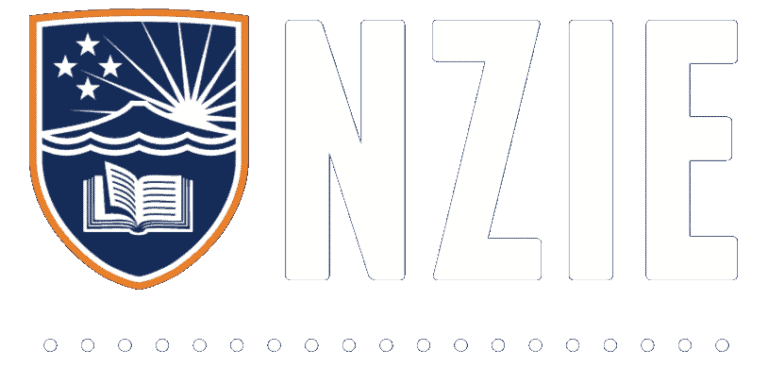So, shiny digital marketing qualification in hand, you’re ready to unleash your skills on clients. But how? Most people choose one of these three paths – become an employee for an organisation, work in-house for an agency or go solo as a freelancer.
Each has its pros and cons and only you can know which might work best.
Working as an employee for one business or organisation
You’ll be employed by a particular business or organisation to do some or all of their digital marketing – either a bit of everything or focusing on one area.
Pros
Steady work with regular income. You’ll likely work set hours for an annual salary. Plus you’ll get paid sick leave and annual leave and possibly a contribution to a retirement fund. This gives you stability and makes it easier to budget.
You’ll get to know the business really well. Working there all the time means you’ll get to know the business and its people inside out. That can help to make your marketing more authentic.
Regular colleagues. Another benefit of working for an organisation in-house is that you’ll see a regular group of people each week. That might be a team you work with directly or it could be other members of staff.
Professional development. Depending on the size and budget of your employer, you might get some professional development either directly related to your job or more general skills.
Cons
All your eggs are in one basket. That one employer is your sole source of income. So if, for any reason, you lose that job, there’s a big hole in your finances.
Not as much variety. Sticking with just one business or organisation for a long time might start to get stale after a while, especially if you find yourself repeating the same kind of content year-in, year-out.
Less flexibilty. While many organisations have embraced hybrid and flexible working, being employed is still likely to reduce your choices when it comes to how and when you work.

Working for an agency
You’ll be employed by an agency that runs digital marketing for a variety of clients.
Pros
No need to find your own work. When you work for an agency someone else will be in charge of drumming up the clients. You’ll just need to concentrate on providing services for them.
A steadier flow of work. Because agencies tend to be larger, with more clients, you are likely to get a steady flow of projects to work on, than as a solo contractor.
Regular payment. Just like being employed by one organisation, being employed by an agency means you’ll get regular wages.
Variety. Because agencies work with a range of clients, that means you’ll get a variety of work, too, so your days will be different.
Cons
Tight deadlines or fast pace. Agencies are often busy places, and you might have to work quickly and to tight deadlines in order to meet client expectations.
A choppy workflow. Because of the fast pace and the range of clients, you might find yourself jumping from project to project and you may not be around to see the fruits of your labour because you’ll be working on the next thing.
Pay may be lower than elsewhere. Just like any business an agency wants to make a profit. Depending on their client fees and the amount they want to take off the top, you might find that wages are lower than if you worked directly in-house for one organisation.

Freelancing or contracting
Work for yourself and find your own clients
Pros
More flexibility over when and where you work. The major benefit of freelancing is that you decide how much work you want to do and when and where you do it (within reason of course). You can work from home and find hours that suit you.
Variety of clients. Most freelancers work with more than one client so you’ll get the variety you might not get as one organisation’s employee.
More autonomy. Many clients look to a digital marketing freelancer as their expert so you have more autonomy when it comes to guiding the strategy and decisions around the marketing.
Eggs in more baskets. Because you’ll likely have multiple income streams you won’t be hit as hard if one of them should fall through. Plus you might find it easier to replace a smaller amount of income with a new client.
Cons
You have to find your own clients. When you work for yourself, you also have to do your own marketing and find your own clients. You’ll also have to decide on pricing structures which some people can find daunting.
Not always steady work. A lot of freelancers describe their working lives as either feast or famine – you are either super busy or there’s no work at all. That can be hard if you rely on a regular income. You could offset this by potentially working part-time for an agency as a contractor to ensure a steady flow from one place.
Lack of collaboration and support. Depending on the projects you take on and your arrangements with the client, you may find yourself working solo a lot. This lack of collaboration and support can be difficult for some.

Things to think about before you choose your path
Remember that what’s right for one person might not be right for another. We’ve listed some of the common advantages and disadvantages for each option, but, depending on your circumstances, some may not be a drawback or a positive for you.
Here are some questions to ask when you are thinking about which path to follow
- Are you reliant on the income and need it to be guaranteed?
- Do you want to be able to work from home or irregular hours?
- Are you trying to fit your work around other commitments like childcare which need flexibility?
- Would you be happy working for just one company all the time?
- Are you confident in talking or pitching to people and marketing yourself to find clients?
- Can you juggle multiple projects and deadlines, or do you prefer to concentrate on one thing at a time?
- Are you happy working by yourself or do you love being part of a team?
Lastly don’t forget that our career journeys aren’t always a straight path from A to B. Whichever path you choose now may not be the one that makes most sense later on. For example you might work with an organisation first and then freelance later on when you have more experience and want more flexibility. Or you might enjoy fast-paced agency work when you are younger and starting out, but want the stability of just one organisation later in your career.
Whichever path you choose, study with NZIE can help you achieve you goals. Our diploma gets you started on the right foot, and our short courses are fab for honing your skills as you move along.


